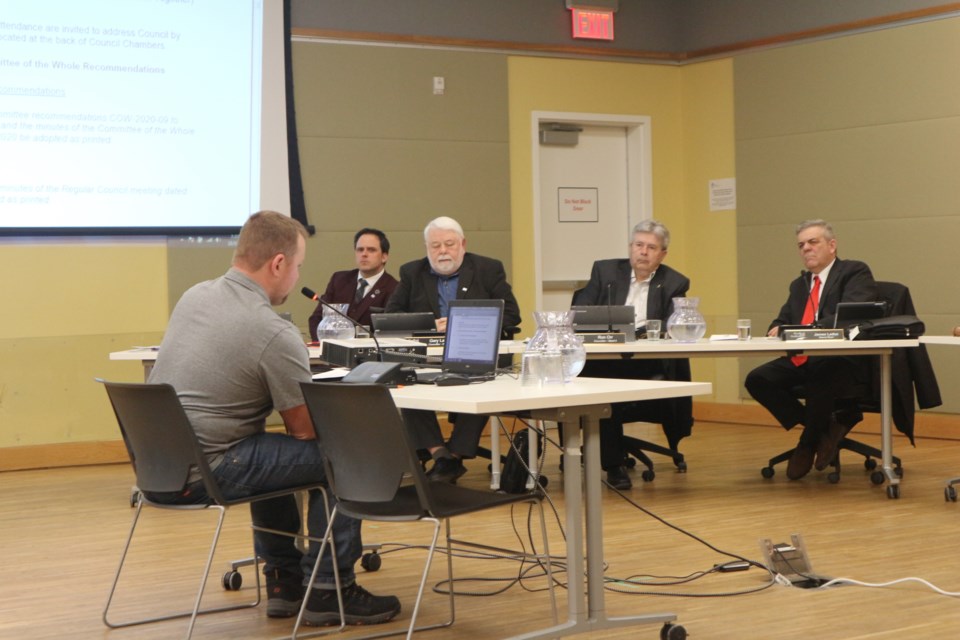It was a packed house at Tuesday night's Bradford West Gwillimbury town council meeting to discuss a hot topic: cannabis.
In the committee of the whole meeting, a report was presented with a proposal to hold a public meeting and prepare a bylaw zoning amendment for the growing of cannabis in the Holland Marsh area.
Over the past 12 to 18 months, the town has received inquiries from potential growers looking to obtain licences for cannabis micro-cultivation operation facilities within the municipality.
Back in May 2019, council introduced an interim control bylaw under the Planning Act to temporarily prohibit new cannabis operations so that town staff can consider necessary planning and zoning bylaws that could address such facilities in the area.
Growing cannabis in the fertile marsh has become a growing issue and has led to numerous complaints regarding odour, drainage issues, the installation of greenhouses, and enforcement issues.
Three farmers came out to voice their concerns in the open-forum portion of the meeting regarding the lack of regulation in the marsh. They expressed their frustration over the impact of cannabis greenhouses on their livelihood.
David Munshaw was one of the farmers who spoke. Munshaw, who has been farming since 1988 with his father, urged council to create a bylaw to reduce the number of greenhouses being allowed to grow cannabis in the marsh, which is bisected by Highway 400, noting the odour is "thick in the air with an oily discharge" that has penetrated home and carrot storage facility.
"It is literally in our house, in our living room. You can smell it. It doesn't go away," he told councillors.
Munshaw added that the odour has put a strain on his marriage; his wife no longer wants to raise a family in the marsh.
"There is excess water coming off these greenhouses, going down my field, in my carrot crop," he said. "This is our livelihood and if we keep losing fields, in 10 years, the marsh is going to be full of dope."
His mother, Christine, also voiced her concerns and pleaded for council to help, noting "valuable soil is being covered up and taken out of production."
"The marsh is part of Bradford's history and its roots. Please do the right thing and amend the bylaws for vegetable growing only," she added.
Council agreed that something needs to be done and soon, noting staff have taken the proper steps to create some guidelines.
"We got to do something and we got to do something fast," said Coun. Gary Baynes. "Whatever we come up with has to look at the existing and the new grow-ops."
The report was to provide councillors with a review of the types of cannabis licences offered through Health Canada, outline the policies and zoning in regards to growing cannabis in the town’s agricultural and rural areas, and provide reviews of the issues related to micro-cultivation operations, cannabis cultivation on the Holland Marsh, and drainage impacts, more specifically from greenhouse installations.
Some of the options presented to council included:
1. Status quo where cannabis permissions would simply continue to be governed by existing zoning definitions and permissions;
2. Initiate a zoning bylaw amendment providing specific definitions, permissions and standards for cannabis cultivation;
3. Implement site-plan control for cannabis growing operations, and;
4. Drafting a cannabis specific regulatory bylaw under the Municipal Act that sets certain regulations based on the fact that cannabis production, particularly in the marsh could be considered a public nuisances (e.g. odour) and implementation of a business licence for agricultural cannabis production.
It is being recommended that council initiate a specific zoning amendment related to the cultivation of cannabis, make an amendment to the site-plan control bylaw, as well as a regulatory bylaw that includes provisions for licensing agricultural cannabis operations.
Deputy Mayor James Leduc noted that council "certainly wants to engage with the public on the issue" and assured that "we aren't the only municipality going through this."
Coun. Raj Sanhu commended staff on the report, but asked if there was a way to speed up the process to control cannabis production.
Ryan Windle, with the town's planning department, noted it would take time.
"Even if we started tomorrow, you're into a number of months," he said.
Coun. Baynes suggested dropping the percentage of greenhouses allowed on the marsh to 10 per cent.
Coun. Gary Lamb suggested adopting King Township's bylaw, which limits greenhouses to 30 per cent of their total agricultural land.
CAO Geoff McKnight acknowledged the urgency to have a solution put in place sooner, but noted these suggestions would still require time. He said he will discuss with staff ahead of the next council meeting to come up with some options to expedite the process.



